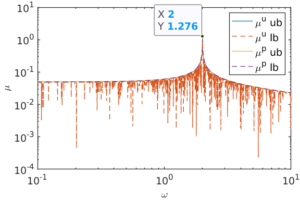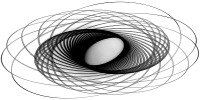E Jonckheere, SG Schirmer, FC Langbein, CA Weidner, S O’Neil. Disturbance-agnostic robust performance with structured uncertainties and initial state error in classical versus quantum oscillatory systems. Preprint, 2023. [arXiv:2305.03918] [PDF]

A method to quantify robust performance for situations where structured parameter variations and initial state errors rather than extraneous disturbances are the main performance limiting factors is presented. The approach is based on the error dynamics, the difference between nominal and perturbed dynamics, driven by either the unperturbed or perturbed state, rather than an artificially imposed disturbance. The unperturbed versus perturbed dichotomy can be interpreted as the relative error dynamics scaled by either the unperturbed or perturbed dynamics. The error dynamics driven by unperturbed state has the unique feature of decoupling the effect of physically meaningful uncertainties from an additive disturbance. The perturbed case offers the possibility to side-step Structured Singular Value (SSV) computations. Applications to a lightly damped mechanical system and a slowly dephasing quantum system demonstrate the usefulness of the concepts across a broad range of systems. Finally, a fixed-point algorithm specifically developed for quantum systems with state transitions depending in a nonlinear fashion on uncertainties is proposed as the substitute for classical SSV.
![]() This work is licensed under a Creative Commons Attribution-NonCommercial-ShareAlike 4.0 International License.
This work is licensed under a Creative Commons Attribution-NonCommercial-ShareAlike 4.0 International License.
